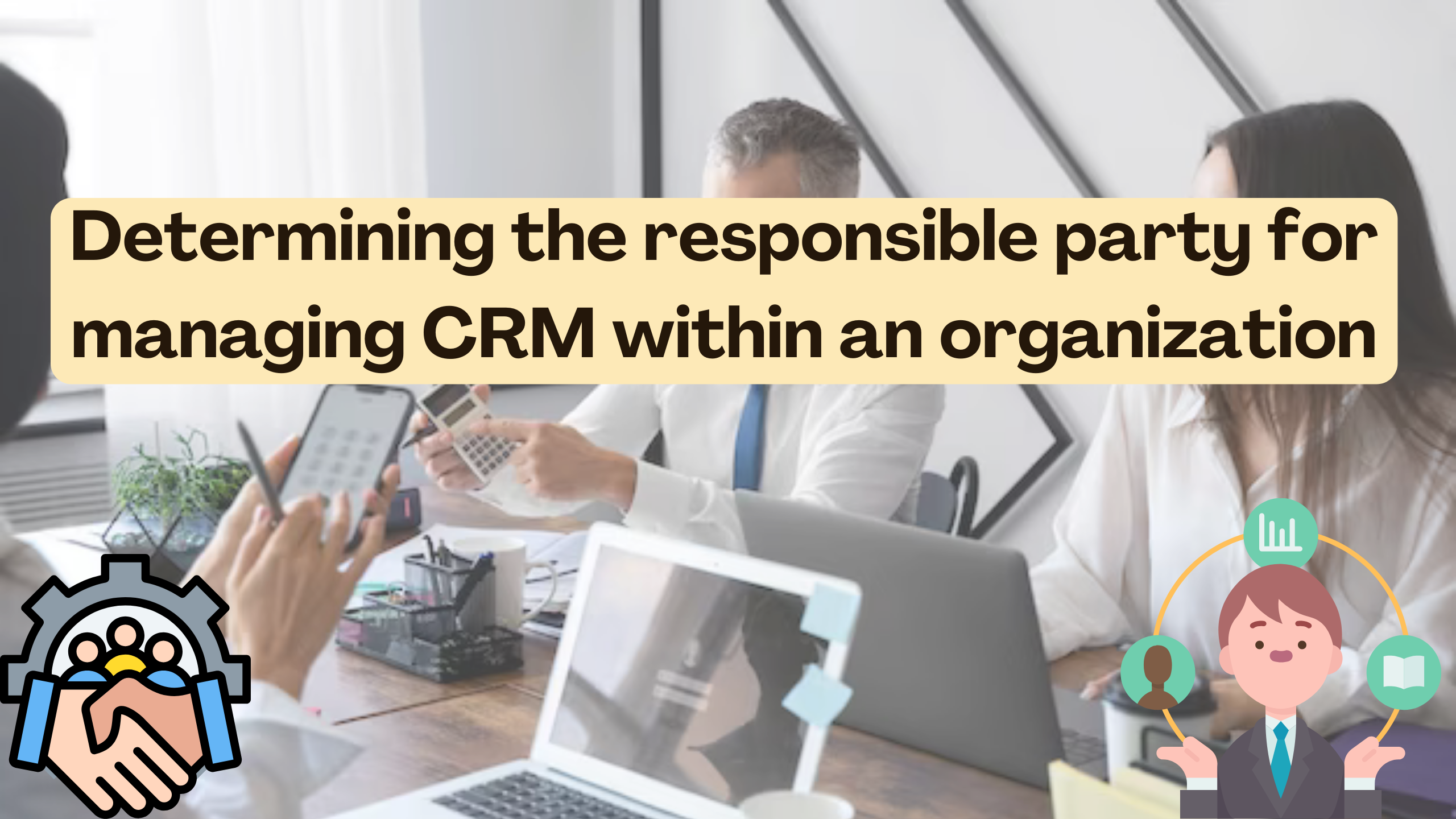Determining the responsible party for managing CRM within an organization
- Expense Management Software Credit Cards Investing Business Solutions


Determining the Responsible Party for Managing CRM Within an Organization
Customer Relationship Management (CRM) tools have become integral to businesses aiming to enhance customer interactions, streamline processes, and drive growth. The critical question often asked is, “Who should manage CRM?” This article delves into the intricacies of CRM management, shedding light on the roles and responsibilities associated with it.
The Landscape of CRM Management
In navigating the diverse terrain of CRM management, organizations must understand that the dynamics can vary based on size, structure, and overarching goals. Let’s explore the potential stakeholders and their roles in effective CRM management.
1. Sales Team: Navigating Customer Interactions
- At the forefront of customer interactions, the sales team finds immense value in CRM. Managing leads, monitoring deals, and gaining insights into customer behavior are pivotal aspects of their role.
2. Marketing Team: Aligning Strategies with CRM Insights
- Marketers leverage CRM data for targeted campaigns, lead nurturing, and comprehensive analysis of customer engagement. Their role ensures alignment between CRM functionalities and overarching marketing strategies.
3. IT Department: Enabling Technical Excellence
- The IT department plays a crucial role in the technical aspects of CRM implementation, integration, and maintenance. Their responsibilities ensure the CRM system operates seamlessly and securely.
4. Customer Support: Personalized Assistance
- Customer support teams benefit significantly from CRM by accessing customer history, preferences, and past interactions. This wealth of information aids in providing personalized and efficient support.
5. Management and Executives: Strategic Decision-Making
- Leadership teams utilize CRM insights for strategic decision-making. Their focus revolves around high-level analytics, forecasting, and assessing the CRM’s impact on overall business objectives.
Critical Considerations for CRM Management
Effectively determining the responsible party for CRM management involves careful consideration of various factors:
- CollaborationEncourage collaboration between departments to ensure a holistic approach to CRM utilization. Siloed operations can impede the effectiveness of CRM tools.
- Training and AdoptionProvide comprehensive training for users across departments to enhance adoption rates. A well-trained workforce can unlock the full potential of CRM tools.
- Data SecurityCollaborate closely with the IT department to implement robust security measures. Safeguarding sensitive customer data is paramount for maintaining trust and compliance.
- ScalabilityChoose a CRM solution that aligns with the organization’s scalability needs. Future growth should be accommodated seamlessly by the CRM system in place.
In Conclusion: A Collaborative Endeavor
In conclusion, the responsibility for managing CRM within an organization is a collaborative effort. It involves various departments working in tandem to harness the full potential of CRM tools. The choice of who manages CRM depends on the specific objectives, structure, and unique needs of each business.
Elevate Your CRM Experience with Subscribed.FYI
Enhance your CRM experience with Subscribed.FYI, an all-in-one solution for freelancers and small teams to understand, compare, and manage their SaaS stack. From exclusive deals to streamlined subscription management, Subscribed.FYI empowers businesses to optimize their operations effectively.
Unlock Exclusive Deals at Subscribed.FYI








